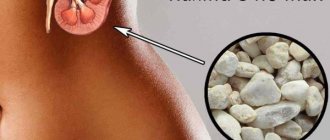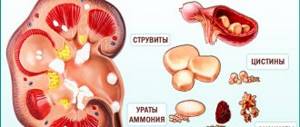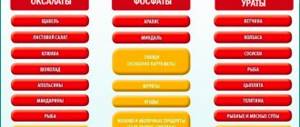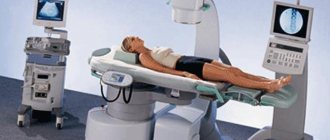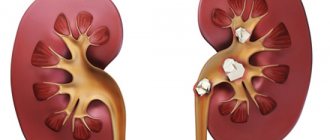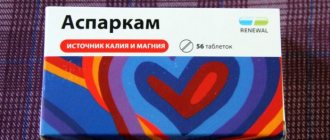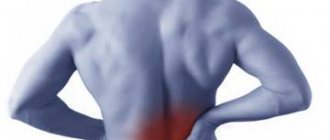Urolithiasis is a pathological condition of the body in which, due to metabolic disorders, the formation of stones (calculi) occurs and their deposition in different parts of the urinary system.
This process can remain invisible to humans for a long time. The disease usually manifests itself during the movement of stones or during infection and inflammation caused by these stones. Urolithiasis (UCD) is accompanied by severe pain, renal colic, impaired urine output, intoxication of the body and can result in renal failure.
Review of drugs used in the treatment of urolithiasis
For each person with urolithiasis, before prescribing tablets and other methods of treatment, the composition of the stones and their location are determined. Various metabolic disorders cause the formation of stones of a special type, which are treated with different methods and drugs.
Attention: independent treatment of urolithiasis is impossible. Drugs for urolithiasis of the kidneys can only be selected by a doctor after a comprehensive diagnosis.
Groups of funds used:
- Preparations for dissolving stones and removing them. Urate (uric acid salts) and oxolate (oxalate) stones can be dissolved and excreted in the urine. To break down stones and wash them out, Allopurinol, Blemaren, Uralit-U, Enatin are used.
- Drugs that normalize the composition of urine and prevent stone formation - Hydrochlorothiazide, Canephron, Cyston.
- Drugs that improve metabolic processes and microcirculation - Trental, Pentilin, drugs that prevent blood clots - Aspirin.
- Multivitamin complexes to activate the body's defenses.
If the size of the stones exceeds 5 mm, and they cannot be dissolved with drugs, methods of crushing and subsequent removal are used.
The same set of drugs is used to treat urolithiasis in men. Prostatitis often contributes to the appearance of stones in men. Therefore, the necessary set of remedies includes medications against this disease.
Prevention of chronic pyelonephritis in women
In order to prevent the appearance of stones, healthy people need to pay attention to the prevention of urolithiasis. But these recommendations will be especially useful for those who have crystals and sand in their urine or have been diagnosed with kidney stones.
- Maintain drinking regime. If there are no contraindications, a person should drink about 2 liters of liquid per day. The best option is clean drinking water. It is an ideal solvent and helps dilute the salts, preventing the formation of crystals and the formation of stones from them. People living in hot climates need to increase the volume to 3 liters.
- Consume clean water. In some regions, water contains large amounts of salts, which leads to increased concentrations in the urine and the formation of crystals. It is better to buy bottled water or use highly purified filters.
- Stay hydrated. Infectious diseases, burns, hot weather, prolonged physical activity and sports cause significant fluid loss. You must constantly replenish its reserves. To do this, it is advisable to drink frequently (every half hour), or in small portions of 100-150 ml. This will help reduce intoxication, remove harmful substances from the body and protect the kidneys.
- Eat a balanced diet. Kidney stones are formed both in meat eaters who adhere to a protein diet, and in vegetarians who consume a lot of acidic vegetables and fruits. Therefore, nutrition should be varied and balanced in composition. It is recommended to eat 150-170 g of meat and 50 g of fish per day. It is not necessary to eat them every day, for example, you can fish 2 times a week for 300 g. You also need 300-400 g of vegetables and the same amount of fruits in any form every day. The total amount of cereals and bread should be 300-400 g.
- Don't over-salt your food. For an adult, the daily salt requirement is 5 g or one teaspoon. This amount includes all the salt in the dishes you prepare and in the products (mayonnaise, herring, chips). Excess salt makes it difficult for the kidneys to function.
- Take vitamins. Deficiency of vitamins, especially E and group B, negatively affects the condition of the mucous membrane of the genitourinary organs and kidney function, and also leads to disruption of metabolic processes. Therefore, it is recommended to take vitamin complexes 2 times a year.
- Lead an active lifestyle. Lack of physical activity contributes to urinary stagnation. And exercises aimed at strengthening the abdominal and lumbar muscles improve kidney function and eliminate congestion. The daily norm should be walking (30-40 minutes) and a set of exercises lasting 15-20 minutes. The best option is to additionally visit the gym or pool 2-3 times a week.
- Get outdoors. Ultraviolet deficiency has a bad effect on bone health. Minerals are washed out of them, which can take part in stone formation.
- Treat diseases of the urinary system in a timely manner. Any inflammation can provoke the formation of stones and exacerbation of urolithiasis. Therefore, at the first symptoms, seek qualified help and do not self-medicate.
- Take care of your digestive health. Deficiency of digestive enzymes in gastrointestinal diseases leads to the formation of calcium oxalate stones. Thus, in case of digestive disorders, ascorbic acid turns into oxalate, which is deposited in the kidneys in the form of crystals.
- Avoid hypothermia. Keep your feet and lower back warm. The receptors located in these areas have a reflex connection with the kidneys and bladder. Hypothermia can cause inflammation or spasm of the smooth muscle around the stone.
- Take herbal diuretics periodically. Watermelon, pomegranate juice, and a concentrated decoction of dried apricots (100 g per 0.5 liter of water) are suitable. Some medicinal herbs have a diuretic and anti-inflammatory effect: bear's ears, corn silk, horsetail and bearberry. They “wash” the kidneys, prevent salts from precipitating and remove small stones and sand that have already formed.
Effective antibiotics for urolithiasis
Taking antibiotics helps to avoid infection, which often accompanies urolithiasis, or to cure inflammation that has begun. Their choice is made after bacterial culture of urine and determination of sensitivity to the drug.
- Cephalosporins. These drugs have the ability to concentrate in the kidneys and urine. Usually prescribed when there is a threat of purulent inflammation. They have low toxicity. Cefotaxime, Zinnat, Cefazolin, Cefradin, Tamycin.
- Aminoglycosides. Highly effective antimicrobial agents do not cause allergic reactions. However, they are toxic. Gentamicin, Amikacin.
- Carbapenems. One of the new groups of antibiotics, which therefore often turns out to be the most effective. Imipenem is often combined with cilastatin.
- Macrolides. Azithromycin, Vilprafen - these drugs are used in the treatment of urolithiasis in women. They are effective in case of infection of the genital organs, which often accompanies ICD. In women, urolithiasis is often diagnosed during the treatment of vaginitis and adnexitis.
- Fluoroquinolones. They are effective against many pathogens, have a strong effect and are prescribed for severe inflammation. Can be used in combination with other antibiotics. Ofloxacin, Pefloxacin. Not prescribed during pregnancy.
- Penicillins. Ampicillin and Solutab are used. These drugs are non-toxic and are often prescribed to pregnant women and children. However, they may cause allergic reactions.
Important: antibiotics for urolithiasis are prescribed for a course of treatment until the source of infection is completely destroyed. If you refuse to take it, you may develop a purulent focus of inflammation and impaired kidney function.
Treatment of urolithiasis
Since often the first sign of urolithiasis is an attack of renal colic, all efforts are aimed at stopping it. After the patient's condition has improved, further treatment is carried out.
To facilitate the passage of stones through the urinary tract, medications are prescribed that relieve spasm of smooth muscles. First of all, it is baralgin.
Urolithiasis is characterized by the presence of sand and stones in the kidneys and urinary tract. Treatment of urolithiasis with folk remedies in this case is considered almost the main method of therapy.
Recipes from traditional healers can work wonders, dissolving kidney stones in just a few months of use at home. What are the most effective folk remedies for treating urolithiasis?
What do you need to know when treating urolithiasis at home?
Modern specialists in the field of urology still prefer conservative treatment methods. Drug therapy is the best way to combat stone formation.
The drugs and medications chosen for the treatment of urolithiasis should have a complex effect on the body.
Currently, three groups of medications are used: those that improve urodynamics and dissolve stones, as well as antibacterial agents.
Antibiotics for urolithiasis
Quite often, stone formation is accompanied by infectious complications. Pyelonephritis or acute cystitis can interfere with the healing process.
Antibacterial drugs for the treatment of urolithiasis will help to avoid this. Their main goal is to destroy the infectious process and normalize metabolic processes in the body.
Antibiotics are often used to prevent recurrent stone formation. If we talk about medications for the treatment of urolithiasis, most doctors give preference to drugs of the nitrofuran series:
- Furadonin;
- Furagin;
- 5 NOC (nitroxoline);
- Sulfonamides (etazol, biseptol, bactrim, urosulfan);
- Nolicin or Norflox (norfloxacin);
- Nalidixic acid (negram and nefigramon).
The drugs listed above are sufficiently concentrated in the urine, preventing the spread of infection through the urinary system. In case of pronounced inflammation, doctors resort to the use of broad-spectrum drugs - ampicillin, ticarcillin, amoxicillin and others.
Along with them, 1st and 2nd generation cephalosporins (cefradine, cephalexin, cefaclor, etc.) are also used.
All medications for the treatment of urolithiasis are prescribed by the attending physician along with an appropriate drinking regimen and diet.
Herbal remedies
Antibiotics for pyelonephritis are prescribed empirically at the first stage, and then, based on the results of bacteriological urine culture, taking into account the identified pathogenic microflora. The duration of treatment for uncomplicated pyelonephritis is 14 days.
At the first visit, the drug is prescribed empirically, then - taking into account the sensitivity of the flora. Antibiotics must be taken strictly in accordance with medical recommendations until the urine is completely sanitized.
List of essential medications:
- Amoxicillin 500 mg, 1000 mg tab.
- Amoxicillin clavulanic acid 625 mg tab.
- Cefazolin powder for the preparation of injection solution 1000 mg.
- Cephalexin 250 mg, 500 mg tablet, caps.
- Furagin 100 mg tablet.
A maintenance course of treatment is carried out after complete normalization of urine tests: nitrofurans 1/2 - 1/3 daily dose 1 time at night for 2 months. and more. During treatment, it is necessary to increase fluid intake to eliminate intoxication of the body and maintain forced diuresis, which helps relieve the inflammatory process.
Fluid restriction is possible only when an exacerbation of the disease is accompanied by edema and impaired urine outflow or severe arterial hypertension.
Treatment of chronic pyelonephritis with herbs is carried out in the remission phase, which occurs after a course of antibacterial antibiotic therapy. Treatment of pyelonephritis with folk remedies is aimed at achieving stable remission and reducing the frequency of relapses of the disease. Anti-relapse treatment with herbal infusions and mixtures is carried out from 2 months to 2 years.
Which antispasmodics help best?
These drugs are used in the treatment of urolithiasis to relieve pain and reduce swelling of tissues damaged by standing stones. They are often prescribed together with non-steroidal anti-inflammatory drugs (NSAIDs) - Diclofenac, Ketoprofen.
- Neurotropic antispasmodics – M-anticholinergics – Atropine, Metacin.
- Myotropic - No-shpa, Drotaverine, Mebeverine, calcium channel blockers - Tamsulosin.
- Propantheline Bromide, Papaverine, Diprofen - relieve spasm of smooth muscles.
- Avisan is an antispasmodic of plant origin, relaxes smooth muscles, promoting the passage of stones and the outflow of urine.
When treating urolithiasis in women during pregnancy, antispasmodic drugs and analgesics are mainly used. When taking antispasmodics, by relieving muscle tension, pain is reduced and urodynamics are improved.
What analgesics are best to use for pain?
Urolithiasis is accompanied by aching pain in the lumbar region and attacks of renal colic when stones move, especially during passage through the ureter. Pain is relieved not only with antispasmodics, but also with non-narcotic and narcotic analgesics.
A non-narcotic drug is often Baralgin, which is used intramuscularly and intravenously. It relieves moderate pain well. Voltaren and Trigan are used.
Pain during renal colic can only be relieved with narcotic drugs. Promedol is most often used.
Painkillers
Therapeutic therapy for urolithiasis is not complete without the prescription of antispasmodics or analgesics, which are used to eliminate the pain syndrome that occurs during the passage of a stone or renal colic, by relaxing the muscle muscles. Their combination is considered most effective when administered intramuscularly or intravenously.
- Papaverine with Analgin;
- Baralgin;
- Voltaren;
- Diclomax.
The combined action drug Maxigan is also used.
Patients with this disease are advised to have medications of this effect at home without fail, since the process of stone formation can repeat after treatment.
Homeopathy - is it justified?
Homeopathic methods are often used in the treatment of urolithiasis. They are used with a mandatory diet and fluid intake of 1.5-2 liters.
Taking these medications without consulting a homeopathic specialist is not recommended. After determining the type of stones, you can use the remedies indicated for this pathology. Homeopathic remedies – Solidago, Hamamelis.
Doctors believe that taking these homeopathic drugs reduces the body's immune strength and its ability to produce antibodies. Therefore, it is better to consult a nephrologist before taking these medications.
Physiotherapy
In the treatment of urolithiasis, hardware methods of physiotherapy are used, as well as massage and physical therapy. Along with medications, these methods for urolithiasis help improve metabolism and blood supply to the pelvic organs.
- Special complexes of physical therapy.
- Massage of the back, chest, peritoneum, limbs.
- Reflexo- and magnetic therapy.
- Mud therapy.
At home, for urolithiasis, you can use the Almag-01 device. The use of the device is not recommended for stone sizes larger than 5 mm. When using the device, intracellular metabolism significantly improves.
What diuretics are best to take for urolithiasis?
The main task of the kidneys is to remove waste metabolic products with excess fluid. In cases of impaired renal function, edema indicates retention of water and waste products in the body.
Part of the therapy for urolithiasis is the normalization of diuresis - the removal of urine from the body. For this purpose, synthetic diuretics and folk remedies are used.
- Saluretics – Furosemide, Indapamide. They have a pronounced diuretic effect, remove sodium and potassium ions. Improves heart function and has a hypotensive effect. They fight edema well.
- Potassium-retaining agents – Amiloride. They remove sodium salts, retaining potassium and magnesium. Long-term use is indicated. Gently reduce blood pressure.
- Osmotic – Mannitol, transfers excess fluid from cells into the blood, increasing its movement and blood supply to the kidneys. Used to accelerate the removal of excess fluid.
Herbal preparations – Canephron, Cyston, Enatin – have a good diuretic effect for urolithiasis.
To remove excess fluid and remove stones, the beneficial properties of mineral waters are used - Essentuki, Narzan, Borjomi. Water is selected according to indications, taking into account the types of stones. Uncontrolled consumption of mineral waters is prohibited.
When choosing folk remedies, it is necessary to take into account the size of the stones and their composition. Therefore, you should consult a specialist before use.
Antibiotics and other medications for a diagnosis of kidney stones
If a person has even the slightest suspicion of the formation of kidney stones or the presence of sand in them, he should immediately visit a doctor who, after confirming the diagnosis, will prescribe medications for the treatment of urolithiasis.
With their help, you can minimize the unpleasant symptoms of the disease and quickly remove stones from the body.
It must be remembered that self-medication for this pathology is strictly prohibited, since it will provoke the development of serious complications that will not have the best effect on the woman’s health.
Therapeutic methods
Quite often, urolithiasis goes away in people without any symptoms, but the lack of timely treatment will cause a severe attack of pain, which will lead to disability for 1-5 days.
To prevent this, you need to receive timely treatment, which is carried out only under the guidance of a doctor. But before prescribing medications, the doctor conducts a full examination of the patient and makes an accurate diagnosis. This is due to the fact that there are different types of stones and their location, which determines the treatment methods.
According to their composition, stones are:
- urates;
- phosphates;
- oxalates.
The composition of kidney stones directly depends on the reasons that caused their growth - this could be a lack of vitamins, poor environment, poor nutrition, the course of certain diseases, and so on.
According to their location, sand-concrete formations can be located in one or two kidneys, as well as the bladder or its outflows.
The location of the stones also affects the symptoms of the disease:
- renal colic indicates the appearance of stones in the ureter;
- aching pain, difficulty urinating, increased pain during exercise indicate the appearance of stones in the kidneys or other urinary organs.
If a woman does not realize in time that stones have appeared in her body and does not begin drug treatment for urolithiasis, this can lead to serious complications and irreversible consequences, the most dangerous of which is considered to be the death of the paired organ.
There are different methods of treating kidney stone pathology, thanks to which it is possible to crush and remove parts of the stones from the body, even despite where they are located, and also without paying attention to the shape of the formations.
For urolithiasis in women and men, the following treatment methods are used:
- medicinal – the use of medications to get rid of stones;
- surgical - crushing stones (lithotripsy) is an effective treatment method that gives a minimum number of complications;
- conservative – consists of maintaining a healthy lifestyle, that is, dieting, physiotherapy and exercise therapy.
A common and accessible method of treatment is drug therapy, in which the patient is prescribed the following drugs:
- antibiotics;
- urolitics;
- antispasmodics;
- painkillers;
- stone removal;
- diuretics (herbal kidney tea and tablets);
- anti-inflammatory;
- vegetable.
These drugs for urolithiasis can successfully treat this condition, eliminating its symptoms and improving the person’s condition.
Tablets to get rid of urolithiasis
There are different groups of synthetic drugs that are prescribed to patients with stones in the urinary system.
Fluoroquinolones - this group of medications has an effect on drug-resistant microorganisms. The principle of their treatment is based on blocking and changing the properties of bacterial DNA.
The most commonly used fluoroquinolones are
- Lomefloxacin is an antimicrobial drug, the components of which penetrate the DNA of a dangerous microorganism and destroy its cells from the inside. The dosage of the medicine is calculated by the attending physician, based on the course of the pathology and urine results.
- Ofloxacin - this drug prevents bacterial cell division, which leads to their rapid death.
When treating urolithiasis in women, drugs of this type are prohibited for use during pregnancy and lactation, since they have a lot of negative side effects.
Cephalosporins are one of the largest groups of drugs whose action is aimed at destroying bacterial cells. Because these antibiotics are highly effective, they are often used for a variety of conditions, including the treatment of kidney stones.
The main drugs from the group of cephalosporins:
- Ceftazidime is a medicine used as injections that help cope with severe infections occurring in the female body. They are especially often used in the absence of establishing the cause of the pathology.
- Cefepime - has a negative effect on any type of bacteria. It is worth knowing that if the causative agent of the disease is not known, then the injection of this drug is universal, so it is also prescribed for urolithiasis.
Aminoglycosides - the mechanism of action of these drugs is to disrupt protein synthesis in the causative agent of the disease. However, a small number of bacteria are susceptible to the influence of these drugs.
Most often, Amikacin is used to treat stones in a paired organ. This medicine is prescribed for many diseases, including urinary stones.
The dosage and duration of taking the drug are prescribed only by a doctor who monitors the patient’s health condition.
Carbapenems - these medications for kidney stones successfully destroy the cell walls of harmful bacteria, which causes their rapid destruction.
The main drugs of the group are:
- Meropenem is administered intravenously into the body, which provides faster treatment. Prescribed only by a doctor.
- Cilastatin and Imipenem - this combination of drugs is used in the presence of an infectious disease. For use, a solution is prepared from the powder, which is then injected into a vein using a dropper. Contraindications are pregnancy, lactation, children less than 3 months of age, as well as impaired liver function.
Anti-inflammatory non-steroidal drugs can reduce pain, lower temperature, and also stop the further development of inflammation. Since their use has a minimal number of side effects, these drugs have become widely used in the treatment of various diseases.
The most common anti-inflammatory non-steroidal drugs are Ketoprofen. It has a strong anti-inflammatory effect, reduces pain and normalizes body temperature. Due to the fact that the drug has no single release form, it is very convenient to use, counting the prescribed dose.
The main function of the kidneys is to remove excess fluid, and if they work improperly, the first sign of this condition will be edema. Only a doctor who conducts a diagnostic examination and determines the location, type and size of stones should prescribe diuretics. Another important point is the patient’s well-being and the stage of the pathology.
Since calcium preparations play an important role in the formation of kidney stones, in some cases, in the presence of disorders and the formation of calcified stones, it is necessary to abandon their use, as well as reduce the intake of certain products containing this chemical element.
Herbal preparations
This group of drugs treats the female body in a more gentle way, in comparison with synthetic drugs. Their advantage is considered to be a minimum of side effects, as well as permission for use by pregnant women and young children.
A negative point can be called intolerance to some herbs and plants that are part of natural medicines.
Therefore, the use of plant-based drugs must be agreed upon with a doctor, who recommends the dosage and duration of treatment.
The most common drugs are:
- Canephron.
This medicine, which contains several types of healthy plants, effectively copes with inflammation in the genitourinary system. Canephron is also often prescribed for the rapid removal of fluid, sand and crushed stones from the body. However, it must be taken carefully by people suffering from diabetes. - Cyston.
This antiseptic drug of plant origin quickly removes stones and sand from the inflamed organ of the urinary system. But before using it, you need to make sure that the woman is not allergic to the components of Cyston, otherwise she may experience signs of an allergy such as itching, spots on the skin or a red rash. - Cystenal.
It is used in the treatment of urolithiasis, since Cystenal has several healing properties, namely diuretic, anti-inflammatory and analgesic. - Phytolysin.
This is an antimicrobial agent that will help get rid of the disease in a short time. The plant components present in its composition help to successfully remove stones and sand from the body, and compliance with contraindications will minimize the occurrence of negative side reactions.
Every person should know that any treatment for a disease must be prescribed by a doctor, since self-medication not only worsens the course of the pathology, but also causes serious harm to the patient’s health.
Source: https://pochki2.ru/bolezni/mochekamennaya/preparaty-dlya-zhenshhin.html
Prevention
After you manage to get rid of the stones, you must not forget about following a diet, reasonable physical activity and giving up bad habits. This will help prevent metabolic disturbances in the future. It is necessary to monitor the composition of urine by regularly taking tests, and do an ultrasound so as not to miss new formation of stones.
If there are errors in the diet, stones will form again. Therefore, you need to adjust your lifestyle and always follow it. Pills alone will not cure urolithiasis.
Urolithiasis (urolithiasis) often requires the use of effective medications. These include antimicrobial agents - antibiotics, which can quickly relieve acute symptoms and speed up the onset of recovery.
Tests for pyelonephritis and diagnosis of chronic pyelonephritis
Complete blood count (CBC):
- leukocytosis, shift of the leukocyte formula to the left (optional);
- acceleration of ESR.
Changes in General Urinalysis (UUA):
- moderate leukocyturia;
- possible erythrocyturia;
- moderate proteinuria (up to 1.5 g/l);
- cylindruria.
Kidney ultrasound:
- asymmetrical changes in size;
- expansion and deformation of the collecting system;
- decrease in kidney size;
- reduction in parenchyma thickness;
- there is no clear differentiation of the sinus from the parenchyma.
When to take antibiotics
Antibiotics for urolithiasis become necessary in several cases:
- If the pathology occurs with infectious complications (cystitis, urosepsis, pyelonephritis).
- With the development of severe pain syndrome.
- In order to prevent relapses.
The use of antibacterial agents can only be carried out after a medical prescription. To enhance the effect of such drugs, patients are advised to follow a proper drinking regime, dietary restrictions, undergo physical therapy, and lead a moderately active lifestyle.
Amino- and carboxypenicillins
For urolithiasis, drugs with the following names are effective:
Ampicillin tablets exhibit pronounced activity in the fight against gram-positive and gram-negative pathogenic flora. For urological pathologies, drink the drug every 6 hours. The drug is not prescribed to patients with severe liver disorders, leukemia, infectious mononucleosis, HIV infections, pregnant or breastfeeding women.
Penicillin drugs
Popular penicillins include:
Amoxicillin contains amoxicillin trihydrate. The medication is indicated for the treatment of infections caused by increased activity of staphylococci, streptococci, Shigella, Escherichia coli, and Klebsiella. The drug is prescribed orally, twice or thrice a day, in an individually calculated dosage.
Penicillin is an antibiotic created on the basis of penicillin G sodium salt. This drug is prescribed for the development of infectious processes provoked by enterococci or Escherichia coli. Intramuscular injections given several times a day are considered the most effective.
Both antibacterial agents are contraindicated in patients with hypersensitivity to penicillins, respiratory viral diseases, infectious mononucleosis, severe gastrointestinal infections, allergic diathesis, and bronchial asthma.
Video: Antibiotics. Rules of application
Cephalosporin antibiotics
Therapy for urolithiasis is carried out using:
Zinnat is based on cefuroxime and exhibits a wide spectrum of antimicrobial action. For adults, the drug is prescribed in tablets, twice every 24 hours. The drug is not used in the treatment of patients suffering from hypersensitivity to cephalosporins and infants less than 3 months old. The medication is prohibited during pregnancy.
Cefalotin contains the active substance Cefalotin. The medication is used for urolithiasis intravenously or intramuscularly. The drug is administered at 4-6 hour intervals. An obstacle to antibiotic therapy is hypersensitivity to cephalosporin products.
The active component of Tamycin is cefpiramide. The drug for the treatment of urolithiasis is produced in the form of a powder for the preparation of an injection solution. Injections are given into a muscle or vein. The main contraindication to the prescription of the drug is severe hepatic renal failure.
Cephalexin contains Cefalexin. Medicine for adults comes in the form of tablets or capsules, prescribed every 4-6 hours. Indications for taking the drug include cystitis, pyelonephritis, urethritis, prostatitis, endometritis. The medication is contraindicated during pregnancy and breastfeeding, with sucrase deficiency and fructose intolerance.
The active component of Claforan is cefotaxime. The medicine is produced in powder form and is used to prepare an injection solution. This product is indicated for various genitourinary infections; it is administered intravenously/intramuscularly, 1 to 4 times a day. Claforan is not used in case of hypersensitivity to cephalosporins.
Aminoglycoside agents
Experts practice prescribing funds from the following list:
Netilmicin contains the active substance of the same name. The antibiotic is used in the treatment of urinary system infections caused by microorganisms including Pseudomonas aeruginosa, Escherichia coli, Staphylococcus spp., Proteus spp., Klebsiella spp., Enterobacter spp. and others. The drug is administered in two main ways - intravenous and intramuscular, 2-3 times a day. The medicine should not be used if there is hypersensitivity to its composition, with the development of auditory neuritis, or severe forms of renal failure.
Gentamicin is produced in the form of a solution intended for parenteral administration. The active component of this medicine is gentamicin sulfate. For urolithiasis complicated by pyelonephritis or cystitis, doctors prescribe injections up to 4 times a day, in individual dosages. In case of severe infection, the antibiotic is administered once, in a loading dose. The prescription of the drug is contraindicated in cases of uremia, auditory neuritis, renal pathologies, and while expecting a child.
Amikacin containing amikacin sulfate is active against most pathogenic bacteria. The drug is in the form of a powder for the preparation of an injection composition. This drug is used in the treatment of pathologies arising from urolithiasis - infectious pyelonephritis, urethritis, cystitis. The drug is prescribed three times a day, calculating the dose based on the patient’s weight. The medicine is not used at any stage of pregnancy, for acute diseases of the inner ear, impaired liver or kidney function.
TOP 5 most popular drugs
The most popular and frequently used antibiotics for kidney inflammation today are:
- Levofloxacin . Can be taken either as tablets or as injections. Depending on the disease, the doctor prescribes 200-700 mg of the drug 1-2 times a day. It is not recommended to use the product for pregnant women, as well as people with intolerance to the components of the drug. The medicine also has side effects: dizziness, diarrhea, and the possibility of developing candidiasis.
- Ciprofloxacin is used in an individual dosage regimen, which is determined by the attending physician. Usually prescribed 250-750 mg 2 times a day or intravenously 200-400 mg. Patients with epilepsy, renal failure and other serious diseases should take the medicine with caution.
- Pefloxacin . The dosage of this antibiotic is also selected individually for each patient. It depends on the severity and location of the infection. If an uncomplicated infection is observed, the doctor prescribes 0.4 g of the drug 2 times a day. If the disease is more severe, then you will have to take a dose twice as large. The tablets should be swallowed without chewing them, and then washed down with water. The product should only be taken on an empty stomach.
- Ampicillin is used only for moderate infections. In all other cases, the drug will be ineffective. The medicine is administered intramuscularly at 1-2 million units per day. Moreover, this dose should be divided into 4 administrations.
- Cephalothin . An effective drug for kidney inflammation. It is administered either intravenously or deep intramuscularly. The product is also available in tablet form. Usually a dose of 0.5-2 g is prescribed every 6 hours. The drug should be used with caution during pregnancy and in case of renal failure.
First generation fluoroquinols
Treatment is carried out with Ofloxacin, Ciprofloxacin. Ofloxacin is used for complications of urolithiasis such as cystitis, urethritis, pyelonephritis. The tablets are taken twice a day, in the dosage prescribed by the doctor.
Ciprofloxacin helps fight infectious and inflammatory processes occurring in the structures of the urinary tract and kidneys. The tablets contain ciprofloxacin and are taken on an empty stomach 2 times within 24 hours.
There are few contraindications to fluoroquinolone therapy - pregnancy, breastfeeding, epilepsy and hypersensitivity to the active components.
